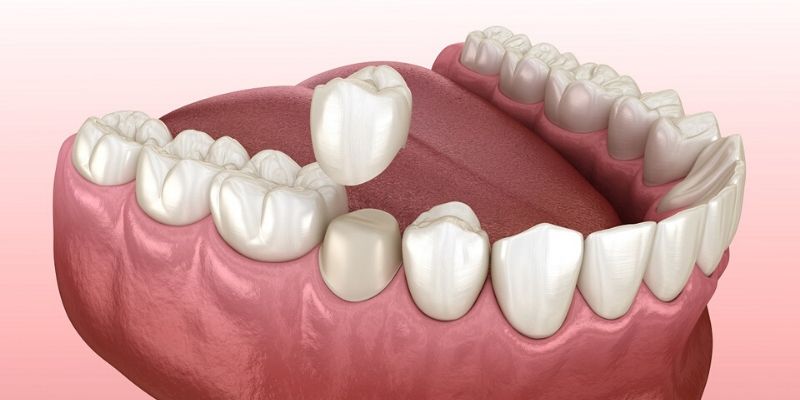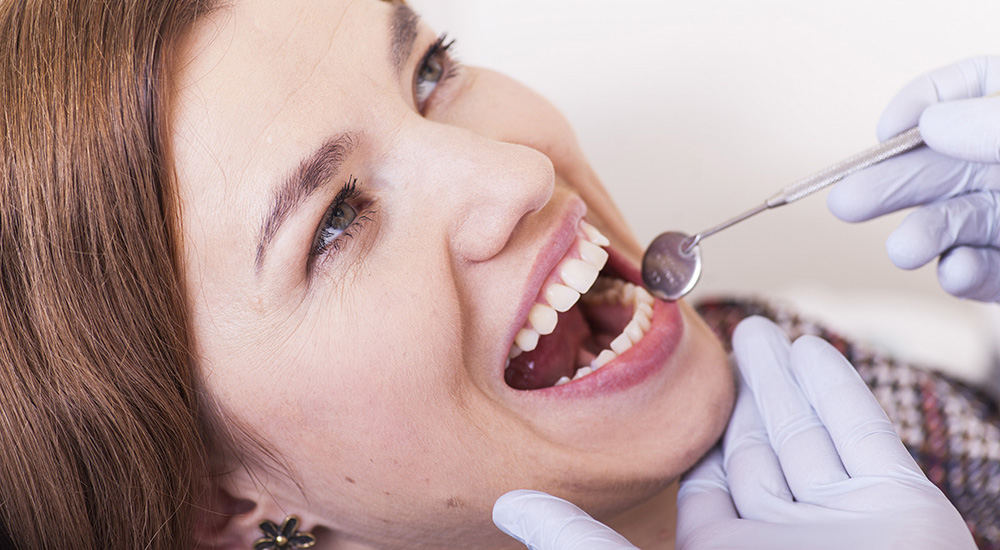
The Ultimate Guide to Selecting the Best Dental Prosthesis for You
Understanding Dental Prostheses
Dental prostheses are artificial teeth replacements that are used to restore a missing or damaged tooth. They are designed to improve the appearance of your teeth, help you chew food properly, and prevent other oral health problems. There are several types of dental prostheses available, each with its own set of pros and cons. Choosing the right dental prosthesis for your needs requires careful consideration of several factors.
Do you dream of a new, beautiful smile? A perfect solution will be the reconstruction of teeth with the use of the Poznan prosthesis service. Qualified specialists from the Stankowscy-Białach dental clinic will do it for you!
Types of Dental Prostheses
There are several types of dental prostheses available, each with its own set of advantages and disadvantages. The most common types of dental prostheses include:
Dentures
Dentures are removable dental prostheses that are custom-made to fit your mouth. They are made of acrylic resin and can be used to replace a full set of teeth or a single tooth. Dentures are typically the most affordable option for replacing missing teeth and are easy to maintain. However, they can be uncomfortable to wear, especially during eating, and may require frequent adjustments to ensure a proper fit.
Implants
Dental implants are surgically placed into the jawbone to replace one or more missing teeth. They are made of titanium and are designed to fuse with the bone over time, creating a strong, stable base for the prosthetic tooth. Implants are a long-lasting and effective solution for missing teeth and can help prevent bone loss in the jaw. However, they are more expensive than other options and require a surgical procedure to place.
Bridges
Dental bridges are prosthetic teeth that are attached to adjacent teeth to fill in gaps caused by missing teeth. They are typically made of porcelain and can be used to replace one or more missing teeth. Bridges are a more affordable alternative to implants and can be more comfortable than dentures. However, they require the alteration of adjacent teeth, which can weaken them over time.
Factors to Consider When Selecting a Dental Prosthesis
Choosing the right dental prosthesis for your needs requires careful consideration of several factors. Some of the most important factors to consider include:
Cost
The cost of dental prostheses can vary widely depending on the type of prosthesis you choose and the complexity of your case. Dentures are typically the most affordable option, while implants are the most expensive. Bridges fall somewhere in between.
Durability
Dental prostheses are designed to last for several years, but their lifespan can vary depending on the type of prosthesis you choose and how well you care for it. Implants are typically the most durable option, as they are designed to fuse with the bone over time. Dentures and bridges may require more frequent replacement.
Comfort
The comfort of your dental prosthesis is an important consideration, as you will be wearing it for extended periods of time. Dentures can be uncomfortable and may require frequent adjustments to ensure a proper fit. Implants and bridges are typically more comfortable, but may require a longer adjustment period.
Appearance
The appearance of your dental prosthesis is also an important consideration, as you want your teeth to look as natural as possible. Implants and bridges are typically the most natural-looking options, as they are designed to blend in with your existing teeth. Dentures may look more artificial.
Dental Prosthesis Material Options
Dental prostheses can be made from a variety of materials, each with its own set of advantages and disadvantages. Some of the most common materials used for dental prostheses include:
Acrylic resin
Acrylic resin is the most common material used for dentures. It is affordable, easy to work with, and can be tinted to match the color of your existing teeth. However, it is not as durable as other materials and may require frequent replacement.
Porcelain
Porcelain is a popular material for dental bridges and implants. It is durable, stain-resistant, and can be tinted to match the color of your existing teeth. However, it is more expensive than other materials and may require more frequent maintenance.
Titanium
Titanium is the most common material used for dental implants. It is durable, biocompatible, and can fuse with the bone over time to create a strong, stable base for the prosthetic tooth. However, it is more expensive than other materials and requires a surgical procedure to place.
How to Prepare for a Dental Prosthesis
Preparing for a dental prosthesis requires careful planning and preparation. Before you can receive a dental prosthesis, your dentist will need to perform a thorough examination of your mouth to ensure that you are a good candidate for the procedure. This may include X-rays, impressions, and other diagnostic tests.
Once you have been cleared for a dental prosthesis, your dentist will work with you to develop a treatment plan that is tailored to your unique needs. This may involve selecting the type of prosthesis that is best suited for your case, taking impressions of your mouth to ensure a proper fit, and planning any necessary surgical procedures.
The Dental Prosthesis Fitting Process
The fitting process for a dental prosthesis can vary depending on the type of prosthesis you choose and your unique needs. Dentures typically require several appointments to ensure a proper fit, while implants and bridges may require surgery to place.
Once your dental prosthesis has been fabricated, your dentist will work with you to ensure that it fits properly and is comfortable to wear. This may involve making adjustments to the prosthesis to ensure a proper fit or providing you with instructions on how to care for your new teeth.
Caring for Your Dental Prosthesis
Caring for your dental prosthesis is an important part of ensuring its longevity and effectiveness. Some tips for caring for your dental prosthesis include:
Cleaning your prosthesis regularly
Dental prostheses can accumulate bacteria and food debris over time, which can lead to bad breath and other oral health problems. Cleaning your prosthesis regularly can help prevent these issues.
Avoiding hard or sticky foods
Hard or sticky foods can damage your dental prosthesis or dislodge it from your mouth. Avoiding these foods can help prevent damage to your prosthesis.
Visiting your dentist regularly
Regular dental checkups can help ensure that your dental prosthesis is functioning properly and can help prevent other oral health problems.
Common Dental Prosthesis Problems and Solutions
Dental prostheses can develop a variety of problems over time, including discomfort, irritation, and damage. Some common dental prosthesis problems and solutions include:
Discomfort
Dentures and other dental prostheses can be uncomfortable to wear, especially during eating. Using a denture adhesive or having your prosthesis adjusted by your dentist can help alleviate discomfort.
Irritation
Dental prostheses can cause irritation to the gums and other soft tissues in your mouth. Using a dental rinse or mouthwash can help alleviate irritation.
Damage
Dental prostheses can become damaged over time, especially if they are not cared for properly. Visiting your dentist regularly and following proper care instructions can help prevent damage to your prosthesis.
Alternatives to Dental Prostheses
If you are not a good candidate for dental prostheses or are looking for an alternative solution, there are several other options available. Some alternatives to dental prostheses include:
Orthodontic treatment
Orthodontic treatment can be used to straighten crooked teeth and improve the appearance of your smile.
Dental bonding
Dental bonding can be used to repair chips, cracks, and other damage to your teeth.
Dental veneers
Dental veneers are thin shells that are bonded to the front of your teeth to improve their appearance.
Conclusion
Selecting the right dental prosthesis for your needs requires careful consideration of several factors, including cost, durability, comfort, and appearance. Working with a trusted dental professional can help ensure that you receive a prosthesis that is tailored to your unique needs and provides you with the best possible results. With the right dental prosthesis, you can say goodbye to the hassle of living with a missing or damaged tooth and hello to a confident smile.
Do you dream of a new, beautiful smile? A perfect solution will be the reconstruction of teeth with the use of the Poznan prosthesis service. Qualified specialists from the Stankowscy-Białach dental clinic will do it for you!


